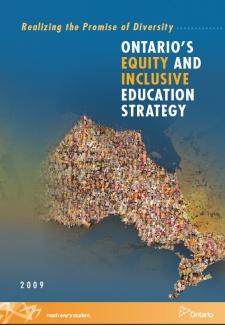A new equity strategy released by Ontario’s Ministry of Education this month is pledging to do better to ensure queer students, staff and parents are supported in their schools.
“Embracing diversity and moving beyond tolerance to acceptance and respect will help us reach our goal of making Ontario’s education system the most inclusive in the world,” writes minister of education Kathleen Wynne in the introduction of the 34-page document.
It all sounds great on paper. But will it deliver?
“I was heartened by the year plan that they’ve mapped out — some of the benchmarks they’ve set forth in terms of what the ministry will do, what school boards and schools will do,” says Steven Solomon, a social worker with the Toronto District School Board (TDSB) who works with both the Triangle Program and the Human Sexuality Program.
Solomon notes that the strategy follows on the heels of a report released in December by Ontario’s Safe Schools Action Team that called for earlier and more comprehensive education on sexual orientation. “Taken together there’s some explicit recognition that there’s some things to deal with.”
But that optimism is balanced with the caution that policy is only as good as its implementation.
“With any policy how it’s worded is important,” says Solomon, “but then the programs and services that will bring it alive, that’s what students, families and communities will look to — the walk behind the talk.”
Included in the strategy document is a four-year plan that outlines commitments from the ministry and outlines targets for school boards and schools, including that all of Ontario’s school boards will “develop or revise policies on equity and inclusive education for implementation by September 2010.” According to the report only 43 of Ontario’s 72 school boards currently have equity policies in place.
“Ensuring that all Ontario school boards will have equity policies in place by September 2010 is an important place to start…. The requirement for school boards to produce equity and inclusive education action plans to show how they are bringing the new policy to life would be another important start,” responds Tara Goldstein, the chair of the department of Curriculum, Teaching and Learning at the Ontario Institute for Studies in Education at the University of Toronto.
The new strategy was released just days after the results of an Egale survey of Canada’s schools. The survey found that although three-quarters of students surveyed said they feel unsafe at school, those students who knew their schools had antihomophobia policies were more likely to feel supported and thought that staff were more likely to intervene in homophobic incidents.
In addition to introducing equity policies the strategy document pledges the ministry will work to incorporate equity issues into the programs for would-be teachers. Although faculties of education have to be accredited by the ministry there are no province-wide curriculum requirements for what antioppression training teachers receive.
“It will be interesting to see how the McGuinty government will work with faculties of education and the Ontario College of Teachers to incorporate equity and inclusive education and what kind of accountability measures are put in place,” writes Goldstein via email.
Goldstein adds that Ontario has seen starts like this before only to have them fall short.
“In the early to mid-90s [the NDP government under Bob Rae] in Ontario changed the Education Act to ensure that all Ontario school boards had antiracism policies and antiracism action in place. The Rae government also had an antiracism secretariat in place to ensure that schools boards had support to comply with this new requirement. A lot of important antiracist education work took place in the 1990s with the policy and secretariat in place. However that work began to taper off as soon as the government changed and the [Conservative government under Mike Harris] dismantled the antiracist secretariat. Antiracism education and other forms of equity and inclusive education need time to take root.”

 Why you can trust Xtra
Why you can trust Xtra


